
Puerto Iguazú: Gateway to Nature's Majestic Waterfalls
Puerto Iguazú, located in the Misiones province of Argentina, is a charming city known for its proximity to the stunning Iguazú Falls, one of the most awe-inspiring natural wonders in the world. The city itself is a vibrant blend of culture, nature, and adventure, making it an ideal destination for tourists seeking an unforgettable experience. Puerto Iguazú serves as the primary base for exploring the Iguazú National Park, home to the majestic falls. The park offers a variety of trails and viewpoints, allowing visitors to witness the breathtaking beauty of the falls from different perspectives. The Devil's Throat, the most impressive section of the falls, is a must-see, with its thundering water and mist creating a dramatic and mesmerizing scene. Beyond the falls, Puerto Iguazú offers a range of activities and attractions. The city boasts a rich cultural heritage, reflected in its local markets, museums, and traditional cuisine. Visitors can explore the bustling Hito Tres Fronteras, where the borders of Argentina, Brazil, and Paraguay meet, providing a unique cultural experience. The nearby Guira Oga wildlife refuge is perfect for animal lovers, offering a chance to see rescued native species up close. Puerto Iguazú is also known for its welcoming and friendly locals, who are always eager to share their knowledge and stories with visitors. The city's relaxed and laid-back atmosphere makes it a perfect place to unwind after a day of exploring. Whether you're seeking adventure, nature, or cultural experiences, Puerto Iguazú has something to offer every traveler.
Local tips in Puerto Iguazú
- Visit Iguazú Falls early in the morning to avoid crowds and enjoy the serene beauty.
- Wear comfortable walking shoes and carry water when exploring the national park.
- Don't miss the local markets for unique souvenirs and traditional Argentine crafts.
- Try the local cuisine, especially the delicious empanadas and yerba mate.
- Ensure you have local currency (Argentine Pesos) as some places may not accept cards.
- Consider a guided tour to learn more about the history and ecology of the area.
Puerto Iguazú: Gateway to Nature's Majestic Waterfalls
Puerto Iguazú, located in the Misiones province of Argentina, is a charming city known for its proximity to the stunning Iguazú Falls, one of the most awe-inspiring natural wonders in the world. The city itself is a vibrant blend of culture, nature, and adventure, making it an ideal destination for tourists seeking an unforgettable experience. Puerto Iguazú serves as the primary base for exploring the Iguazú National Park, home to the majestic falls. The park offers a variety of trails and viewpoints, allowing visitors to witness the breathtaking beauty of the falls from different perspectives. The Devil's Throat, the most impressive section of the falls, is a must-see, with its thundering water and mist creating a dramatic and mesmerizing scene. Beyond the falls, Puerto Iguazú offers a range of activities and attractions. The city boasts a rich cultural heritage, reflected in its local markets, museums, and traditional cuisine. Visitors can explore the bustling Hito Tres Fronteras, where the borders of Argentina, Brazil, and Paraguay meet, providing a unique cultural experience. The nearby Guira Oga wildlife refuge is perfect for animal lovers, offering a chance to see rescued native species up close. Puerto Iguazú is also known for its welcoming and friendly locals, who are always eager to share their knowledge and stories with visitors. The city's relaxed and laid-back atmosphere makes it a perfect place to unwind after a day of exploring. Whether you're seeking adventure, nature, or cultural experiences, Puerto Iguazú has something to offer every traveler.
When is the best time to go to Puerto Iguazú?
Iconic landmarks you can’t miss
Iguazú National Park
Experience the awe-inspiring power and beauty of Iguazú Falls, a UNESCO World Heritage site surrounded by lush Argentine rainforest.
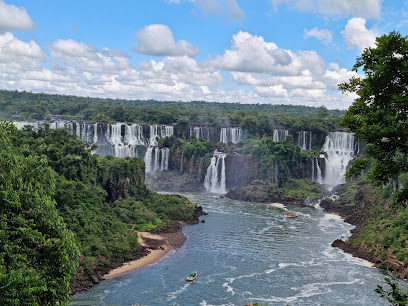
Hito Tres Fronteras
Experience the convergence of Argentina, Brazil, and Paraguay at this iconic tri-border landmark, offering culture, history, and stunning panoramic views.
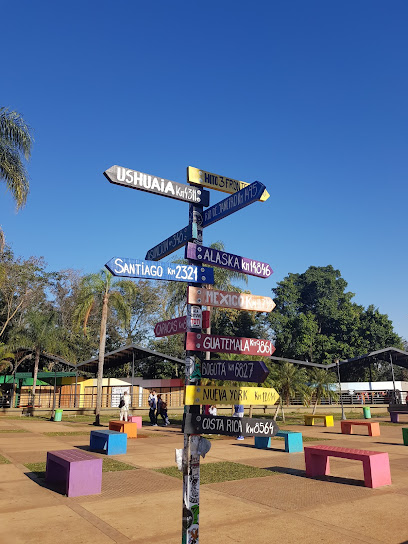
Marco das Três Fronteiras
Experience the convergence of three nations at the Marco das Três Fronteiras in Foz do Iguaçu, where Brazil, Argentina, and Paraguay unite.
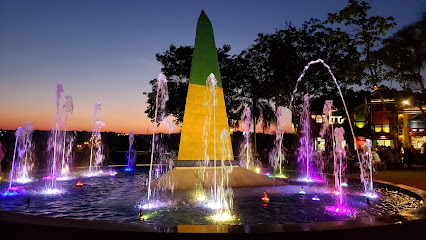
La Aripuca
Explore La Aripuca in Puerto Iguazú: a stunning monument promoting environmental conservation and Guaraní culture with rescued wood.
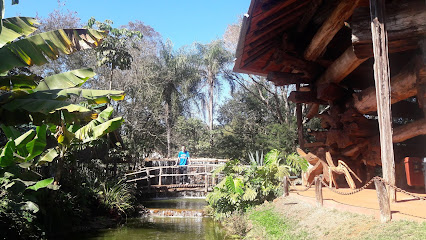
Güirá Oga
Discover Güirá Oga: Where wildlife conservation meets adventure in the heart of the Misiones jungle near Iguazu Falls.
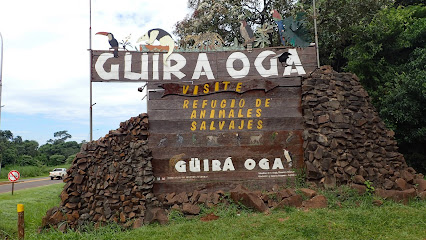
El Quincho del Tio Querido
Experience authentic Argentine cuisine and warm hospitality at El Quincho del Tio Querido in Puerto Iguazú, a culinary landmark for over 30 years.
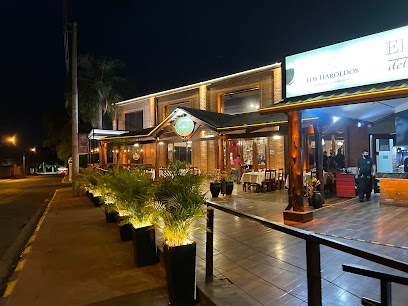
Restaurante La Rueda
A Puerto Iguazú culinary institution since 1975, serving Argentine and Italian cuisine in a traditionally inspired setting.
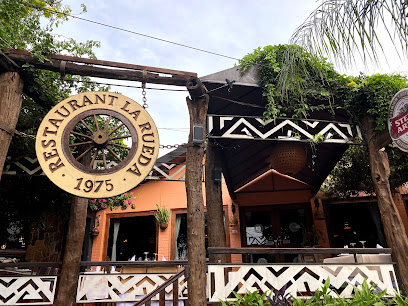
Tacopado Comida Mexicana
Experience the vibrant flavors of Mexico in Puerto Iguazú! Tacos, empanadas, and a fiesta of tastes near Iguazu Falls.
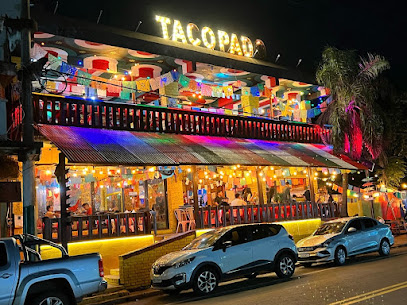
Te Amare Maitena
Experience authentic Argentinian cuisine and a cozy atmosphere at Te Amare Maitena, a Puerto Iguazú gem. Perfect for couples and food lovers!
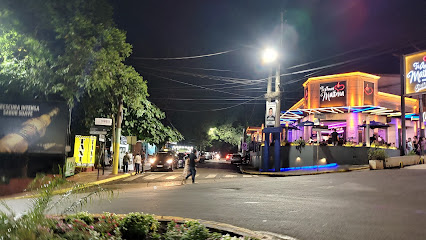
Jardin de los Picaflores
Discover a tranquil oasis in Puerto Iguazú, where you can witness the enchanting beauty of hummingbirds in their natural habitat.
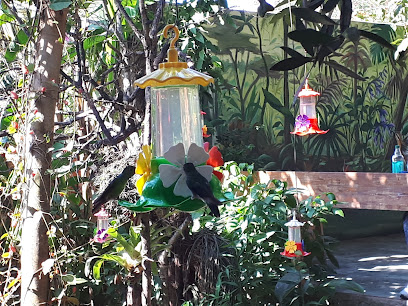
Tatu Carreta
Experience authentic Argentine flavors at Tatu Carreta in Puerto Iguazú, where perfectly grilled meats and a lively atmosphere await!
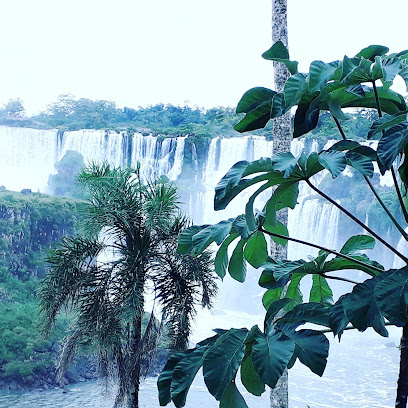
La Misionerita
Experience authentic Argentine flavors at La Misionerita in Puerto Iguazú. Enjoy pizza, empanadas, and local dishes in a welcoming atmosphere.
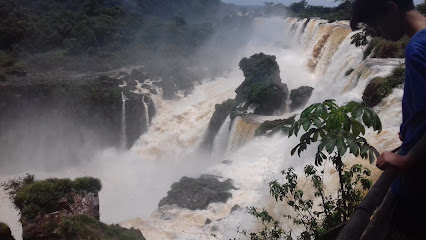
Quita Penas Resto Bar
Savor the authentic Argentine flavors at Quita Penas Resto Bar in Puerto Iguazú, where delicious cuisine meets a vibrant, welcoming atmosphere.
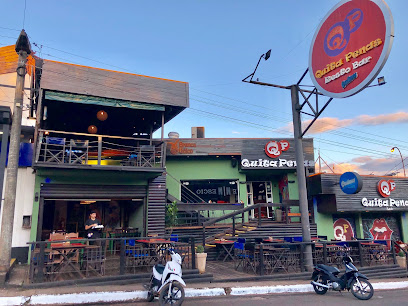
Paseos de Luna Llena en las Cataratas del Iguazú
Discover Iguazu Falls in a new light with the Full Moon Walks, a magical nighttime experience revealing the falls' beauty under the moon's enchanting glow.
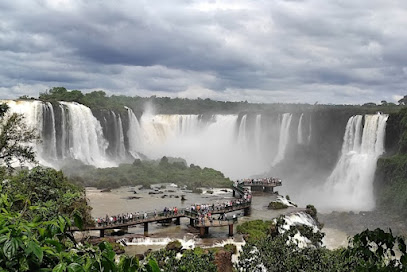
Hotel Guaminí Misión - Puerto Iguazú
Experience the essence of Misiones in a hotel steeped in history, offering comfort and culture near Iguazú Falls.
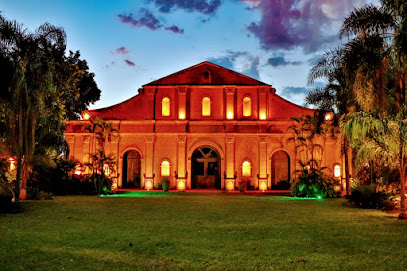
Unmissable attractions to see
Iguazu Falls
Experience the awe-inspiring Iguazu Falls, a symphony of nature's power and beauty on the border of Argentina and Brazil. A UNESCO World Heritage Site.
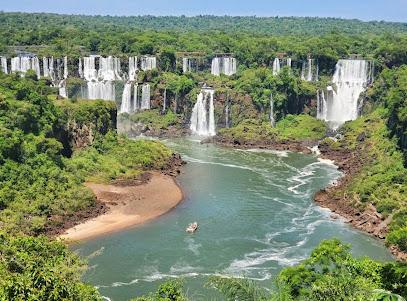
Iguazú National Park
Experience the awe-inspiring power of nature at Iguazú National Park, home to the magnificent Iguazú Falls and diverse subtropical wildlife.
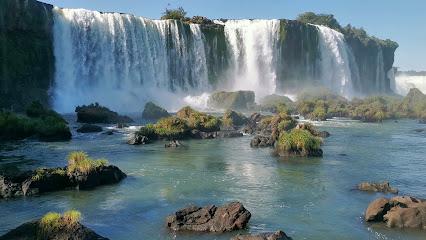
Parque das Aves
Discover the vibrant world of Atlantic Rainforest birds at Parque das Aves, a sanctuary dedicated to conservation and immersive experiences in Foz do Iguaçu.
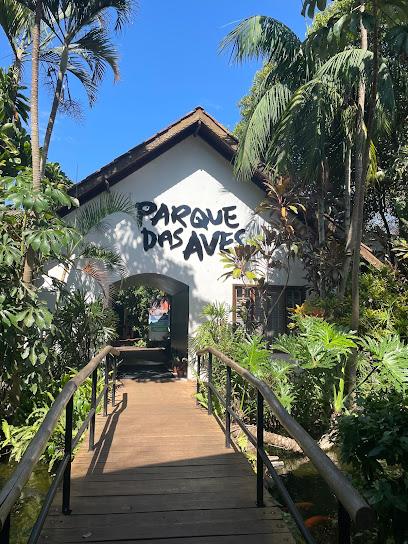
Hito Tres Fronteras (Argentina)
Experience the convergence of Argentina, Brazil, and Paraguay at this tri-border landmark with stunning views and cultural experiences.
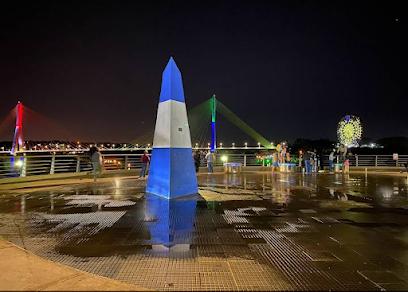
Visitor Center Station
Explore the breathtaking Iguaçu Falls from the Visitor Center Station, your essential starting point for an unforgettable adventure in Brazil's natural paradise.
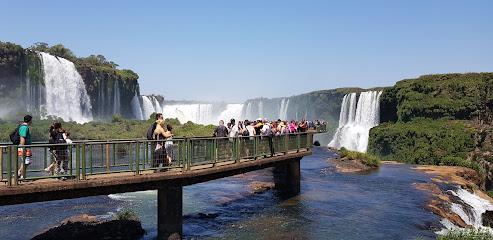
Marco das Três Fronteiras (Brasil)
Experience the convergence of three nations at Marco das Três Fronteiras, where history, culture, and stunning views unite in Foz do Iguaçu.
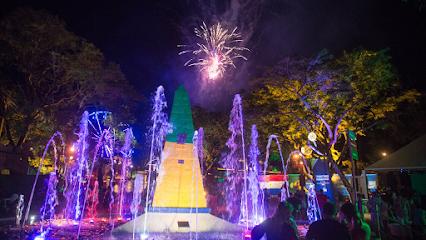
La Aripuca
Discover La Aripuca in Puerto Iguazú: A unique ecological park showcasing sustainable practices and Guaraní culture through impressive wooden structures.
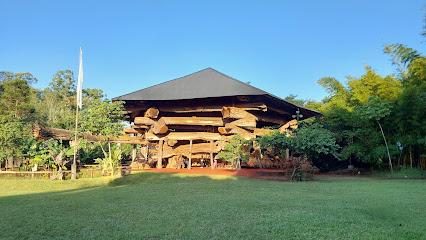
Dreams Park Show
Experience art, culture, and entertainment at Dreams Park Show in Foz do Iguaçu, featuring wax figures, dinosaurs, world landmarks, and more!

Templo Budista Chen Tien
Experience serenity and cultural richness at Templo Budista Chen Tien, a stunning Buddhist temple in Foz do Iguaçu, Brazil.
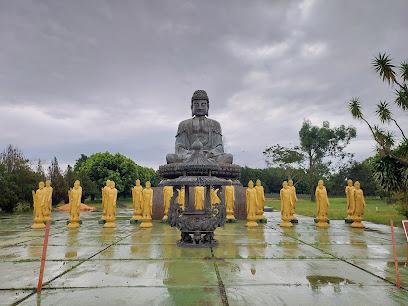
Güirá Oga
Discover Güirá Oga wildlife refuge in Puerto Iguazú: observe native animals, learn about rehabilitation, and support conservation efforts in the Misiones jungle.
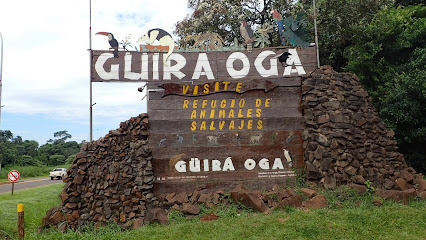
Macuco Safari
Discover the breathtaking beauty of Iguaçu Falls and embark on thrilling adventures at Parque Nacional Iguaçu, a UNESCO World Heritage site in Brazil.
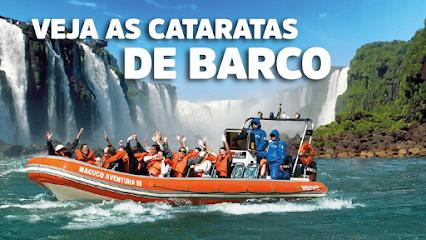
Icebar Iguazú
Icebar Iguazú offers an unforgettable experience in a sub-zero environment, perfect for unique drinks and stunning ice sculptures.
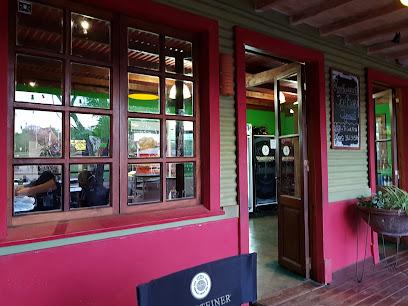
Turismo Itaipu Brasil
Explore Itaipu, a marvel of engineering and nature, blending stunning landscapes with cutting-edge hydroelectric technology in Foz do Iguaçu.
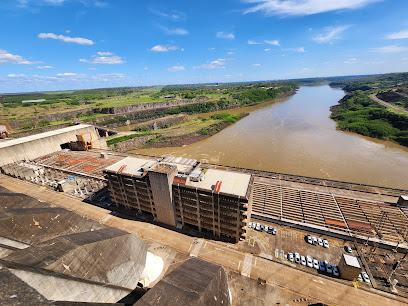
Yup Star: Roda Gigante de Foz do Iguaçu
Discover the breathtaking views from the Yup Star Ferris Wheel in Foz do Iguaçu, where adventure meets stunning natural beauty.
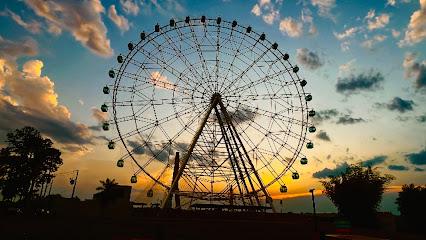
Monday Falls
Experience the breathtaking beauty of Monday Falls in Paraguay, a stunning national park and tourist attraction perfect for nature lovers and adventure seekers.

Essential places to dine
El Quincho del Tio Querido
Discover authentic Argentine cuisine at El Quincho del Tio Querido in Puerto Iguazú - a delightful dining experience awaits.
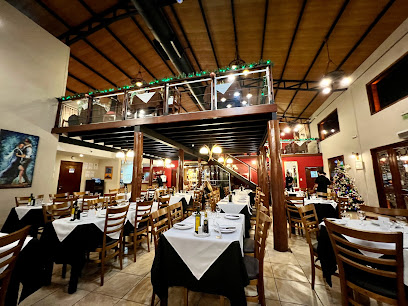
Color Parrilla & Pizza
Discover the authentic taste of Argentina at Color Parrilla & Pizza in Puerto Iguazú—where every meal is a celebration of flavor and tradition.
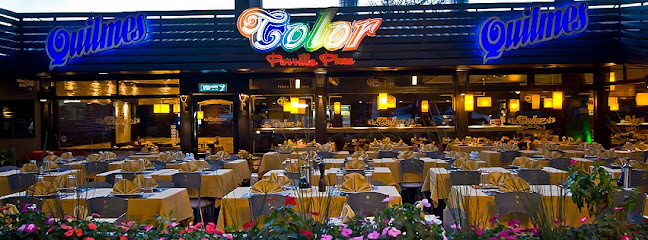
Restaurante La Rueda
Experience authentic Argentine cuisine at Restaurante La Rueda in Puerto Iguazú – where local flavors meet warm hospitality.
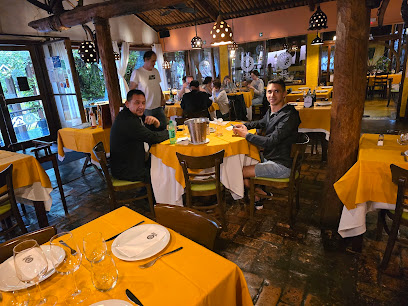
Tacopado Comida Mexicana
Discover authentic Mexican cuisine at Tacopado Comida Mexicana in Puerto Iguazú – where vibrant flavors meet warm hospitality.
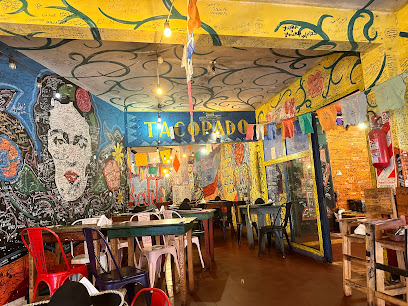
Aqva Restaurante Iguazú
Discover exquisite flavors at Aqva Restaurante Iguazú - where local ingredients meet culinary excellence in Puerto Iguazú.
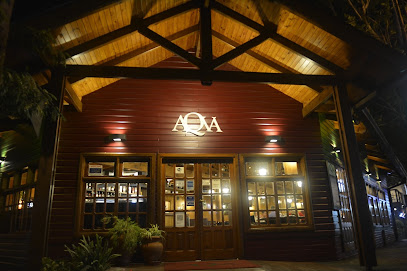
La Republica Del Taco
Experience the vibrant fusion of Mexican and Argentine flavors at La Republica Del Taco in Puerto Iguazú.
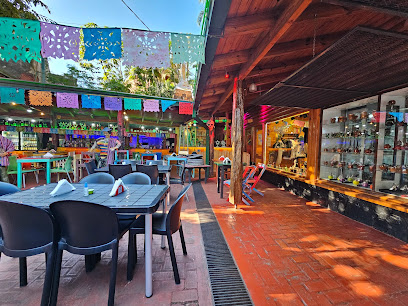
Tatu Carreta
Discover authentic Argentine cuisine at Tatu Carreta - where local flavors meet warm hospitality in beautiful Puerto Iguazú.
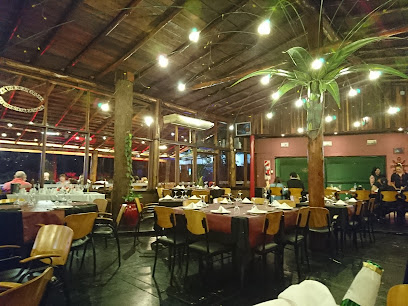
La Misionerita
Experience the vibrant flavors of Argentina at La Misionerita, where authentic cuisine meets warm hospitality in Puerto Iguazú.
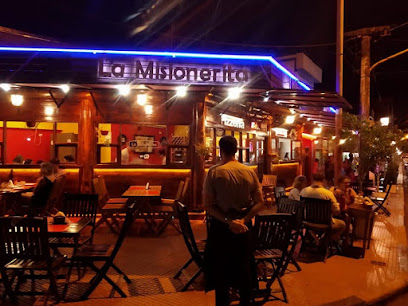
Quita Penas Resto Bar
Discover the vibrant flavors of Puerto Iguazú at Quita Penas Resto Bar – where culinary excellence meets lively atmosphere.
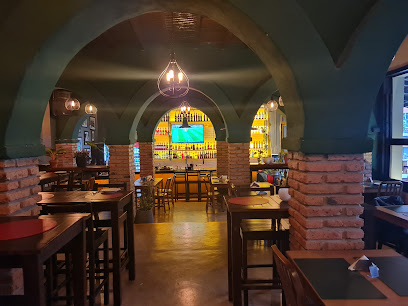
A piacere
Discover the rich flavors of Argentine cuisine at A piacere in Puerto Iguazú – where every dish tells a story.
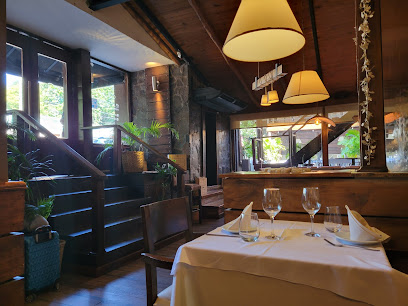
Bambu Restobar
Experience the vibrant flavors of Argentina at Bambu Restobar in Puerto Iguazú - where culinary delight meets friendly atmosphere.
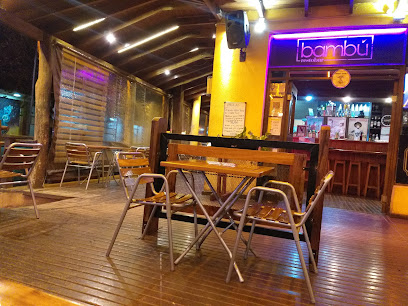
Doña Maria Restaurante
Experience authentic Argentine cuisine at Doña Maria Restaurante in Puerto Iguazú, where every dish tells a story of tradition and flavor.
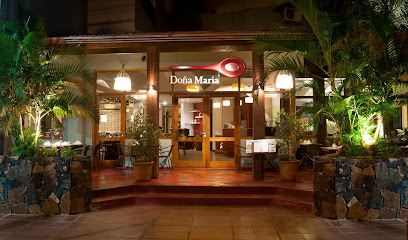
La Dama Juana Restaurant
Discover the best of Argentine cuisine at La Dama Juana Restaurant in Puerto Iguazú – where every meal tells a story.
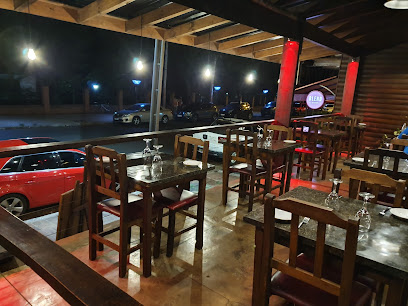
Venancio Parrilla Restaurant
Experience authentic Argentinian cuisine at Venancio Parrilla Restaurant in Puerto Iguazú - where every meal is a celebration of flavor.
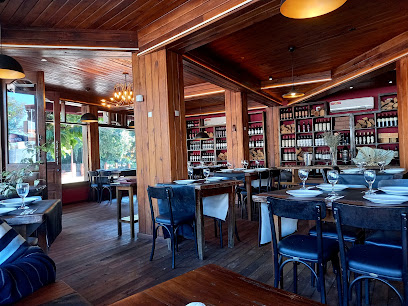
Charo
Experience authentic Argentine cuisine at Charo in Puerto Iguazú – where every meal is a celebration of local flavors.
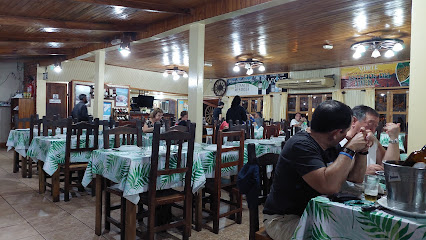
Markets, malls and hidden boutiques
Duty Free Shop Puerto Iguazu
Discover unbeatable deals on luxury items at Duty Free Shop Puerto Iguazu, where shopping meets adventure in a vibrant setting.
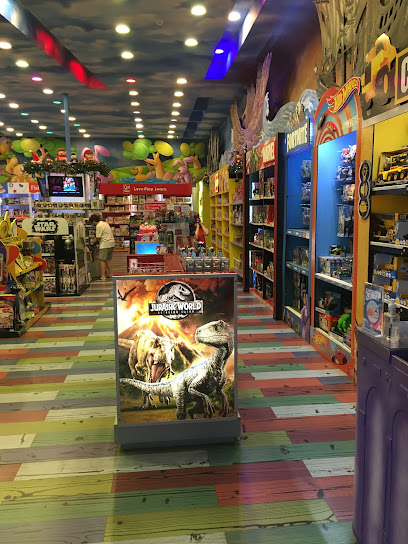
Feirinha Puerto Iguazú
Experience the vibrant flavors and rich culture at Feirinha Puerto Iguazú, where delicious food and local crafts come together in a lively market setting.
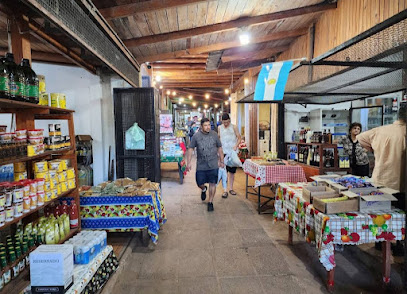
Culturas Park Iguazu
Explore the vibrant art, culture, and traditions of Argentina at Culturas Park Iguazu - a unique theme park experience in Puerto Iguazú.
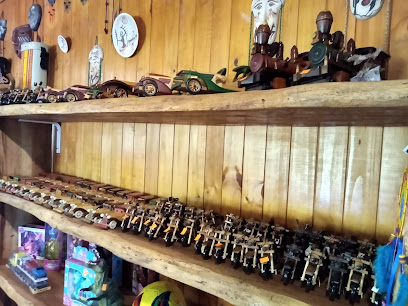
Supermarket EOS 1
Explore the diverse offerings of Supermarket EOS 1 in Puerto Iguazú, where local flavors meet everyday convenience for tourists.
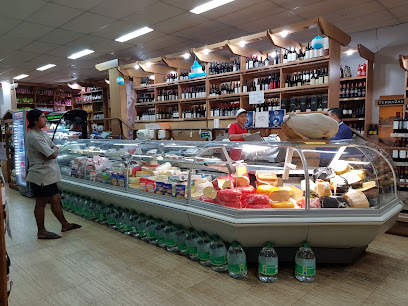
Paseo Comercial Puerto Iguazú
Discover a unique shopping experience at Paseo Comercial Puerto Iguazú, where local culture meets vibrant retail and delightful dining.
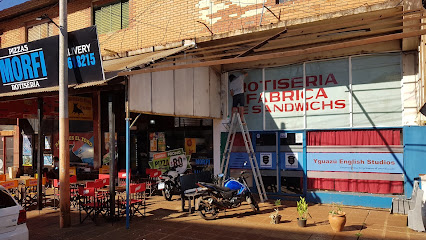
Galeria Santa Catalina
Experience the vibrant world of toys, baby fashion, and captivating books at Galeria Santa Catalina in Puerto Iguazú, an ideal stop for families and shoppers alike.
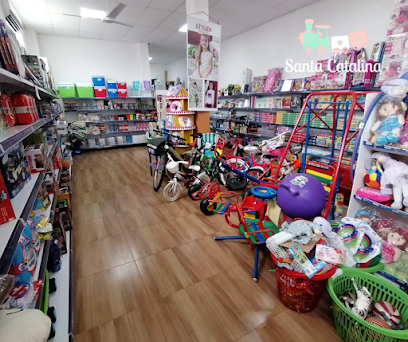
Supermercado Dagú
Explore the culinary wonders of Puerto Iguazú at Supermercado Dagú, your go-to supermarket for fresh produce, quality meats, and local specialties.
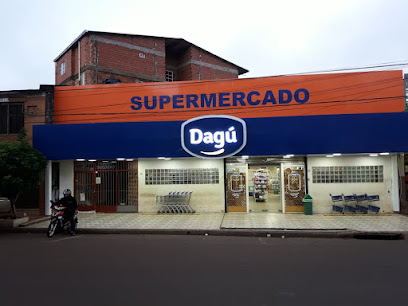
Roads Vinoteca Wine Boutique
Explore exquisite wines at Roads Vinoteca Wine Boutique, Puerto Iguazú's premier destination for wine lovers seeking local and international selections.
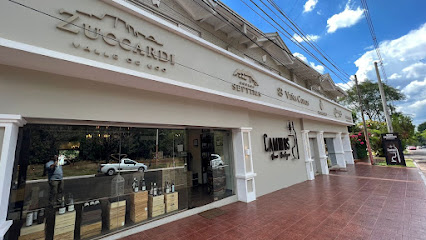
Fox
Explore the vibrant shopping experience at Fox Supermarket in Puerto Iguazú, offering local flavors and essentials for every traveler.
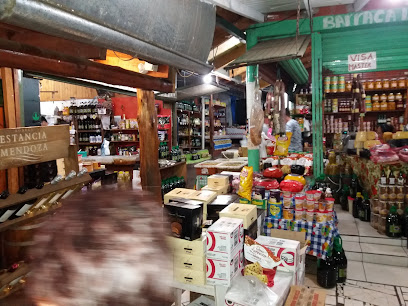
Iguazú Timbó Arte
Explore the vibrant local fashion at Iguazú Timbó Arte in Puerto Iguazú, where unique designs meet sustainable craftsmanship.
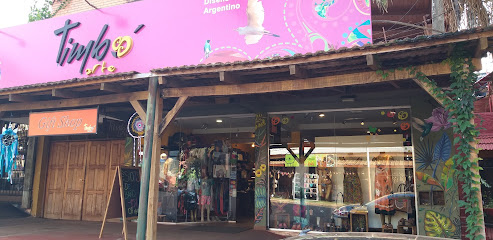
Luz Marina, Alfajores artesanales y chocolateria
Explore Luz Marina in Puerto Iguazú for the finest artisanal alfajores and gourmet chocolates, perfect for sweetening your travel memories.
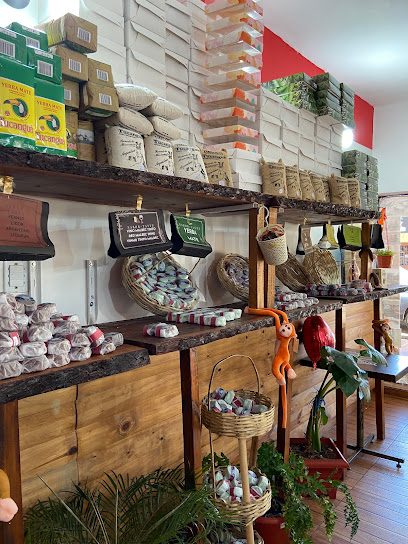
Tienda Urbana
Discover Tienda Urbana in Puerto Iguazú - where fashion meets creativity, and every piece tells a story.
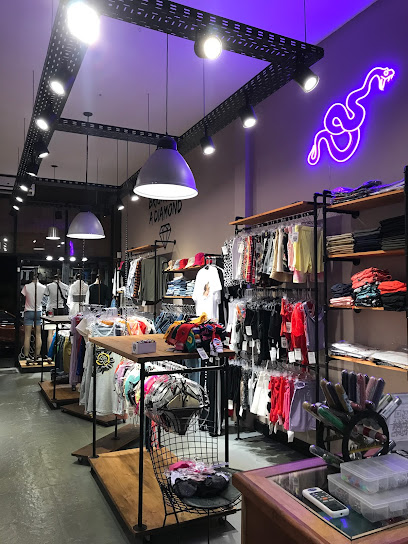
Argentinean Wine Boutique
Explore Argentina's finest wines at the Argentinean Wine Boutique in Puerto Iguazú, where tradition meets flavor in an unforgettable tasting experience.
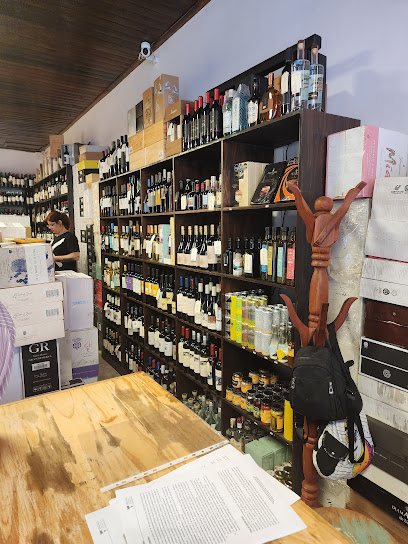
Montana Cueros
Explore Montana Cueros, where local fashion meets vibrant culture in Puerto Iguazú. Discover unique clothing and accessories for every occasion.
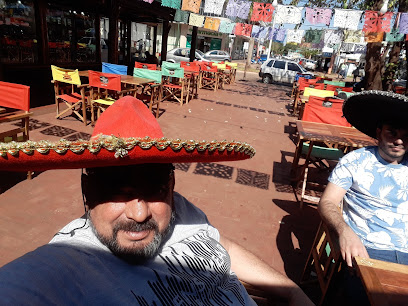
7 bocas
Explore 7 Bocas in Puerto Iguazú: Your go-to spot for trendy women's fashion and unique local styles.
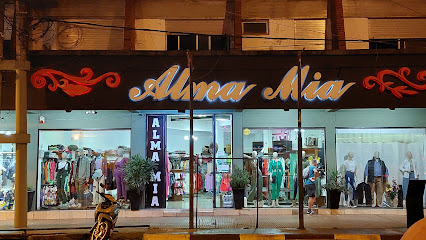
Essential bars & hidden hideouts
Icebar Iguazú
Discover a unique icy escape at Icebar Iguazú, where every drink is served in ice and the atmosphere is as cool as the cocktails.
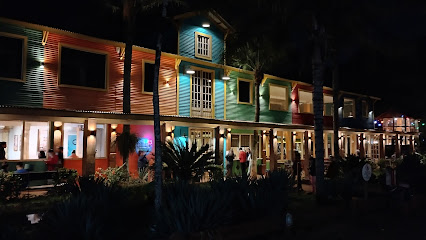
Cerveza Patagonia - Refugio Iguazú
Discover the essence of Argentine craft beer at Cerveza Patagonia - Refugio Iguazú, where nature meets flavor in the heart of Puerto Iguazú.
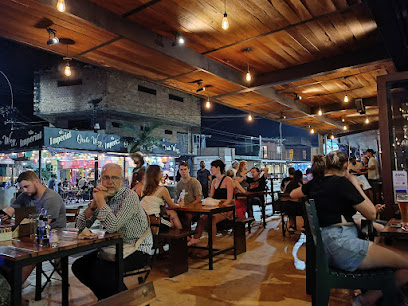
Quita Penas Resto Bar
Experience the vibrant flavors and lively atmosphere at Quita Penas Resto Bar, a must-visit culinary gem in Puerto Iguazú.
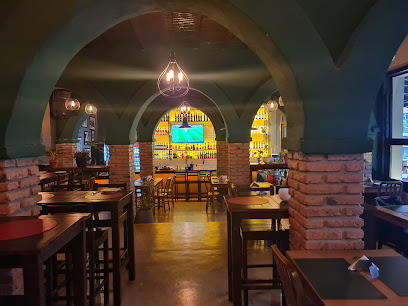
Bambu Restobar
Discover the vibrant culinary scene at Bambu Restobar in Puerto Iguazú, where local flavors and lively atmosphere bring unforgettable dining experiences.
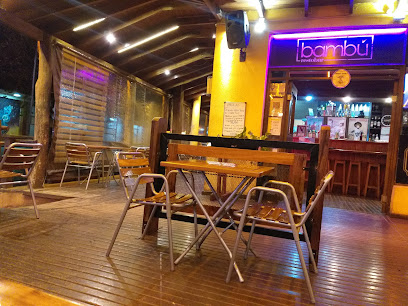
Lecker Public Bar
Discover the lively brewpub atmosphere at Lecker Public Bar in Puerto Iguazú, where craft beers and delicious food meet vibrant nightlife.
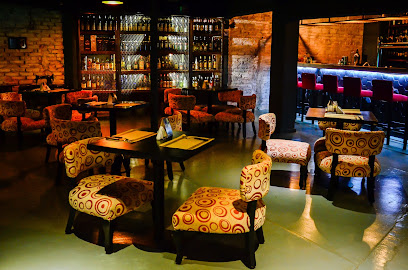
Nomen Nescio
Discover Nomen Nescio in Puerto Iguazú for a unique bar experience featuring local cuisine, vibrant atmosphere, and exceptional cocktails.
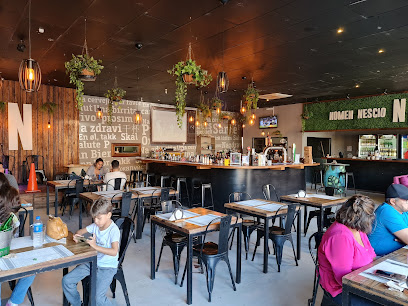
Humulus Speakeasy (bar restaurant pub)
Experience the lively atmosphere and diverse menu at Humulus Speakeasy, Puerto Iguazú's premier bar and restaurant destination.
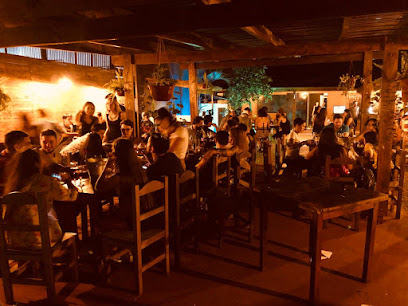
Vinos & Co. Puerto Iguazu
Experience the best of Argentine wines at Vinos & Co. in Puerto Iguazu, where exquisite flavors meet a cozy ambiance.
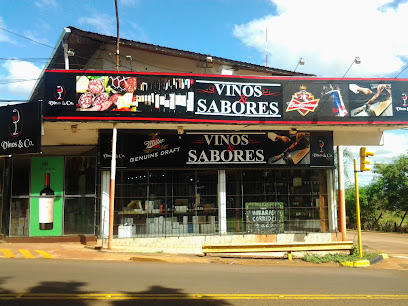
Wicz Bar
Discover Wicz Bar in Puerto Iguazú: a vibrant gastropub offering an exquisite blend of local and international cuisine, perfect for every traveler.
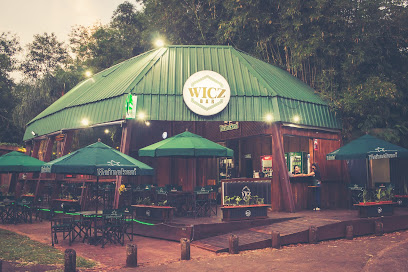
Barraca da Miriam
Discover the lively atmosphere and local flavors at Barraca da Miriam, a vibrant bar in Puerto Iguazú perfect for unwinding after a day of exploration.
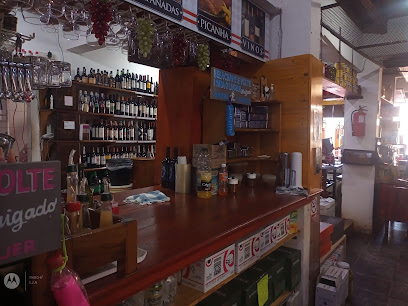
City Bar - Iguazú
Experience the vibrant nightlife of Puerto Iguazú at City Bar, where delicious drinks and local flavors come together in a lively atmosphere.
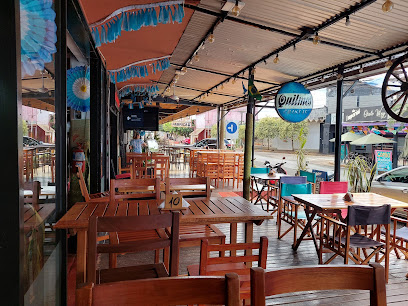
Black House Resto Pub
Discover a unique culinary experience at Black House Resto Pub, Puerto Iguazú's premier gastropub offering a fusion of local and international flavors in a vibrant atmosphere.
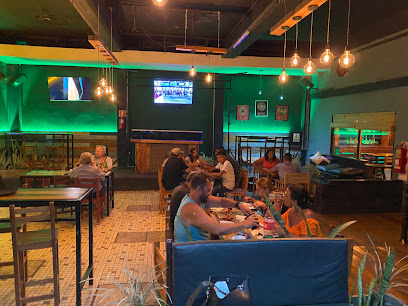
Bar Pool
Experience the thrill of sports and the joy of camaraderie at Bar Pool, Puerto Iguazú's top sports bar, perfect for locals and travelers alike.
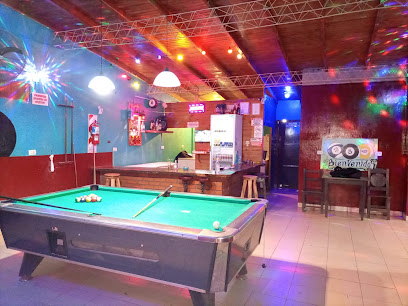
Yvagá Rooftop Bar
Discover the charm of Yvagá Rooftop Bar, a must-visit oasis in Puerto Iguazú offering refreshing cocktails and stunning views.
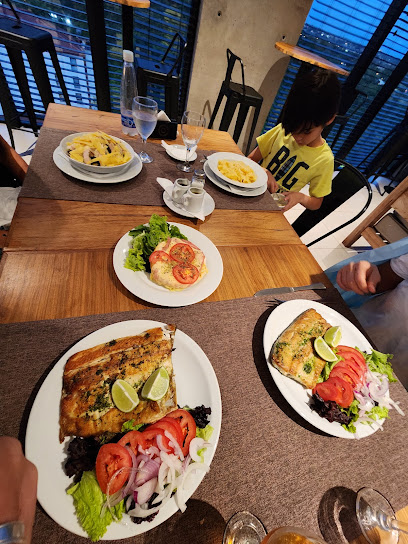
Local Phrases
-
- HelloHola
[oh-lah] - GoodbyeChau
[chow] - YesSí
[see] - NoNo
[noh] - Please/You're welcomePor favor/De nada
[por fah-vor/deh nah-dah] - Thank youGracias
[grah-see-ahs] - Excuse me/SorryDisculpe/Perdón
[dees-kool-peh/pehr-dohn] - How are you?¿Cómo estás?
[koh-moh ehs-tahs] - Fine. And you?Bien. ¿Y tú?
[byen. ee too] - Do you speak English?¿Hablas inglés?
[ah-blahs een-glays] - I don't understandNo entiendo
[noh ehn-tyen-doh]
- HelloHola
-
- I'd like to see the menu, pleaseMe gustaría ver el menú, por favor
[meh goos-tah-ree-ah vehr ehl meh-noo, por fah-vor] - I don't eat meatNo como carne
[noh koh-moh kahr-neh] - Cheers!¡Salud!
[sah-lood] - I would like to pay, pleaseQuisiera pagar, por favor
[kee-see-eh-rah pah-gar, por fah-vor]
- I'd like to see the menu, pleaseMe gustaría ver el menú, por favor
-
- Help!¡Ayuda!
[ah-yoo-dah] - Go away!¡Vete!
[veh-teh] - Call the Police!¡Llama a la Policía!
[yah-mah ah lah po-lee-see-ah] - Call a doctor!¡Llama a un médico!
[yah-mah ah oon meh-dee-koh] - I'm lostEstoy perdido/a
[ehs-toy pehr-dee-doh/ah] - I'm illEstoy enfermo/a
[ehs-toy ehn-fehr-moh/ah]
- Help!¡Ayuda!
-
- I'd like to buy...Me gustaría comprar...
[meh goos-tah-ree-ah kohm-prar] - I'm just lookingSolo estoy mirando
[soh-loh ehs-toy mee-rahn-doh] - How much is it?¿Cuánto cuesta?
[kwan-toh kwehs-tah] - That's too expensiveEso es demasiado caro
[eh-soh ehs deh-mah-see-ah-doh kah-roh] - Can you lower the price?¿Puede bajar el precio?
[pweh-deh bah-har ehl pree-syoh]
- I'd like to buy...Me gustaría comprar...
-
- What time is it?¿Qué hora es?
[keh oh-rah ehs] - It's one o'clockEs la una
[ehs lah oo-nah] - Half past (10)Media hora (10)
[meh-dee-ah oh-rah (diez)] - MorningMañana
[mah-nyah-nah] - AfternoonTarde
[tahr-deh] - EveningNoche
[noh-cheh] - YesterdayAyer
[ah-yehr] - TodayHoy
[oy] - TomorrowMañana
[mah-nyah-nah] - 1Uno
[oo-noh] - 2Dos
[dohs] - 3Tres
[trehs] - 4Cuatro
[kwah-troh] - 5Cinco
[seen-koh] - 6Seis
[says] - 7Siete
[syeh-teh] - 8Ocho
[oh-choh] - 9Nueve
[nweh-veh] - 10Diez
[dyehs]
- What time is it?¿Qué hora es?
-
- Where's a/the...?¿Dónde está un/el...?
[dohn-deh ehs-tah oon/ehl] - What's the address?¿Cuál es la dirección?
[kwal ehs lah dee-rehk-syon] - Can you show me (on the map)?¿Puedes mostrarme (en el mapa)?
[pweh-dehs mohs-trar-meh (ehn ehl mah-pah)] - When's the next (bus)?¿Cuándo es el próximo (colectivo)?
[kwan-doh ehs ehl proh-ksee-moh (koh-lehk-tee-voh)] - A ticket (to ....)Un boleto (a ...)
[oon boh-leh-toh (ah ...)]
- Where's a/the...?¿Dónde está un/el...?
History of Puerto Iguazú
-
Puerto Iguazú, originally known as Puerto Aguirre, was founded in 1901 by the explorer and adventurer Gregorio Lezama. It began as a small trading post on the banks of the Iguazú River, serving as a vital link for early settlers and traders in the region.
-
In the 17th century, Jesuit missionaries established several missions in the surrounding areas, including the famous San Ignacio Miní. Although the missions were eventually abandoned, they left a lasting cultural and architectural legacy that influenced the development of Puerto Iguazú.
-
The Iguazú Falls, one of the most spectacular natural wonders of the world, were first encountered by Europeans in 1541 when the Spanish explorer Álvar Núñez Cabeza de Vaca stumbled upon them. The falls' discovery significantly boosted the region's profile and eventually led to the establishment of national parks.
-
Iguazú National Park was established in 1934 to protect the unique flora and fauna surrounding the Iguazú Falls. The park, which spans both Argentina and Brazil, has since been declared a UNESCO World Heritage Site and remains a cornerstone of Puerto Iguazú's cultural and ecological heritage.
-
In the mid-20th century, Puerto Iguazú began to grow rapidly as a tourist destination, driven by the natural allure of Iguazú Falls. The construction of better roads, hotels, and infrastructure transformed the town into a key hub for travelers seeking to explore one of the world's most awe-inspiring natural landmarks.
-
Puerto Iguazú is a melting pot of cultures, including indigenous Guaraní communities, European immigrants, and neighboring Brazilian influences. This cultural diversity is reflected in the town's cuisine, festivals, and daily life, making it a vibrant and dynamic place to visit.
-
Today, Puerto Iguazú plays a crucial role in Argentina's tourism industry and serves as a gateway to the Iguazú Falls. Its strategic location, rich history, and cultural tapestry make it an indispensable part of Argentina's national identity and a must-visit destination for travelers.
Puerto Iguazú Essentials
-
Puerto Iguazú is located in the northeastern tip of Argentina, in the Misiones Province. The nearest airport is Cataratas del Iguazú International Airport (IGR), approximately 20 kilometers from the town center. Direct flights are available from Buenos Aires and other major Argentine cities. Alternatively, you can take a long-distance bus from Buenos Aires, which takes around 18-20 hours. Cross-border buses and taxis from Foz do Iguaçu (Brazil) and Ciudad del Este (Paraguay) are also available.
-
Puerto Iguazú is a relatively small town, and many of its attractions are within walking distance. For longer trips or visits to the Iguazú Falls, taxis and private car hires are readily available. The local bus system, though limited, can take you to the main tourist spots, including the Iguazú National Park. Renting a car is another convenient option for exploring the surrounding areas at your own pace.
-
The official currency in Argentina is the Argentine Peso (ARS). Credit cards are widely accepted in hotels, restaurants, and larger shops. However, it is advisable to carry cash, especially for small purchases and in more remote areas. ATMs are available throughout Puerto Iguazú, but it's wise to withdraw sufficient cash in advance, as some ATMs may run out of money during peak tourist seasons.
-
Puerto Iguazú is generally a safe destination for tourists. However, standard precautions are advisable. Avoid walking alone at night in unfamiliar areas, and be particularly vigilant in bus terminals and crowded places. While Puerto Iguazú does not have specific high-crime areas targeting tourists, petty crimes such as pickpocketing can occur. Keep your belongings secure and be cautious when approached by strangers.
-
In case of emergency, dial 911 for immediate assistance. The local hospital, Hospital Marta Schwartz, offers medical services, and there are several pharmacies in town for minor health issues. It's recommended to have travel insurance that covers medical emergencies. For consular assistance, contact your country's embassy or consulate in Buenos Aires.
-
Fashion: Do dress comfortably and wear lightweight clothing, as the climate is warm and humid. Don't wear flashy jewelry or carry expensive items openly. Religion: Do respect local customs and traditions, especially when visiting religious sites. Public Transport: Do be courteous and respectful to fellow passengers. Don't eat or drink on public transport. Greetings: Do greet people with a friendly 'Hola' and a handshake. Eating & Drinking: Do try local specialties like empanadas and yerba mate. Don't refuse food or drink offerings, as it is considered impolite.
-
To experience Puerto Iguazú like a local, visit the Hito Tres Fronteras, where you can see the meeting point of Argentina, Brazil, and Paraguay. Enjoy a meal at a local parrilla (grill restaurant) to savor authentic Argentine barbecue. Engage with locals, who are often friendly and willing to share their knowledge about the area. Don't miss the artisanal markets where you can buy handcrafted goods and souvenirs.
Trending Landmark in Puerto Iguazú
-
Iguazú National Park
-
Hito Tres Fronteras
-
Marco das Três Fronteiras
-
La Aripuca
-
Güirá Oga
-
El Quincho del Tio Querido
-
Restaurante La Rueda
-
Tacopado Comida Mexicana
-
Te Amare Maitena
-
Jardin de los Picaflores
-
Tatu Carreta
-
La Misionerita
-
Quita Penas Resto Bar
-
Paseos de Luna Llena en las Cataratas del Iguazú
-
Hotel Guaminí Misión - Puerto Iguazú
Nearby Cities to Puerto Iguazú
-
Things To Do in Foz do Iguaçu
-
Things To Do in Hernandarias
-
Things To Do in Villarrica
-
Things To Do in Encarnacion
-
Things To Do in Carmen del Parana
-
Things To Do in San Bernardino
-
Things To Do in Ypacarai
-
Things To Do in Aregua
-
Things To Do in Asuncion
-
Things To Do in Florianópolis
-
Things To Do in Tacuarembó
-
Things To Do in São Paulo
-
Things To Do in Fray Bentos
-
Things To Do in Rosario
-
Things To Do in Colonia del Sacramento










